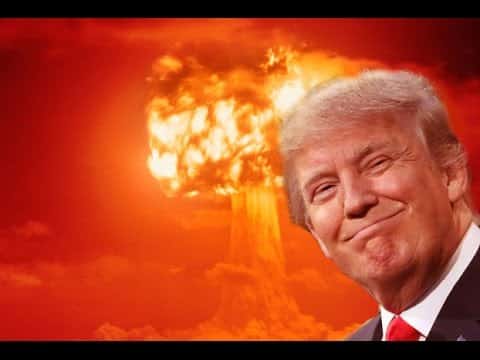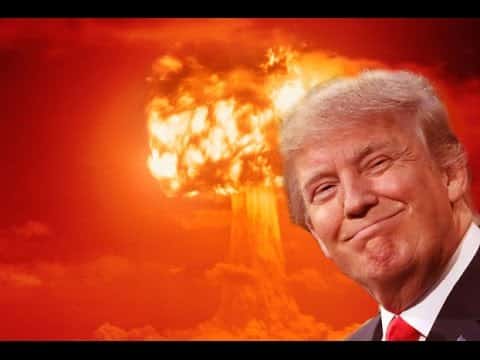
Capitalism is essentially a scheme for peaceful nations. What the incompatibility of war and capitalism really means is that war and high civilization are incompatible. — Ludwig von Mises
Peace is popular.
That was Ron Paul’s message to our audience in Texas earlier this spring, and it has been his consistent message since first running for Congress in the 1970s. So why do seemingly endless wars remain such a stubborn feature of the American presidency, with the shameful complicity of Congress?
Americans who supported Trump did so overwhelmingly because he promised a populist “America First” approach to both domestic and foreign policy. Every poll shows that the domestic economy, culture wars, and immigration were the animating issues of the election — not our ongoing military misadventures in the Middle East. Nobody voted for an escalation of US involvement in Syria, nobody voted to ramp up the never-ending war in Afghanistan by dispatching the Mother of All Bombs, and nobody voted to resurrect an absurd decades-old conflict with North Korea.
Yet President Trump has done all of these things, largely abandoning the noninterventionist promises of Candidate Trump. Perversely, ordering a missile attack on a Syrian air base was the first and only act that earned him praise from his enemies at organs like the New York Times and Washington Post. “He’s finally acting presidential” they gushed.
To understand Trump’s departures from his campaign rhetoric is to understand the very nature of politics and the bureaucratic state. Nobody goes to Washington to “run” the government. Washington runs them.
Trump, ostensibly the biggest outsider to win the presidency in modern American history, cannot overcome the entrenched foreign policy establishment any more than he can overcome gravity. Ninety-five percent of employees at the State Department, Pentagon, CIA, NSA, and the rest of the alphabet soup agencies do not come and go with elections. They, along with the vast apparatus of defense contractors, are not going anywhere.
Permanent war and interventionism requires permanent funding. And like all tax-funded enterprises, war is inherently anti-capitalist. It diverts resources, swells state bureaucracies, and hides the horrific human and economic costs in a cloak of patriotism and platitudes about America’s role in the world. When we hear Vice President Pence talk about “rebuilding the arsenal of democracy,” he really means it.
Ludwig von Mises saw German war socialism up close as a lieutenant in the Austro-Hungarian army during the Great War. Under Wehrwirtschaftslehre, the German doctrine of war economics, the normal calculations of capitalist businessmen go out the window. Costs, quality, demand, and profit become wholly secondary to the overriding goal of preparing the nation for war. Thus war drives the impulse toward autarky (something we’ve seen in Trump) and economic dictatorship: the will and whims of ordinary citizens must yield to war production.
Thus in his darkest moments during the war, Mises resolved to write the definitive refutation of state controlled economies. The result was his 1922 classic Socialism: An Economic and Sociological Analysis, which remains perhaps the most important critique of collectivism ever written. It’s a book everyone should read and share, to understand the fundamental link between war and collectivism.
Dr. Paul’s message of peace and nonintervention is so critical today. It’s a message that is decidedly popular (outside of DC), nonpartisan, and tailor-made for a new century. It resonates with young and old alike, with rich and poor, and across racial lines. It’s popular with the alt-Right and the progressive Left, budget hawks and Greens, Burkean conservatives and tie-dyed peaceniks. We just need to get the message to Mr. Trump.
Reprinted with permission from the Mises Institute.

